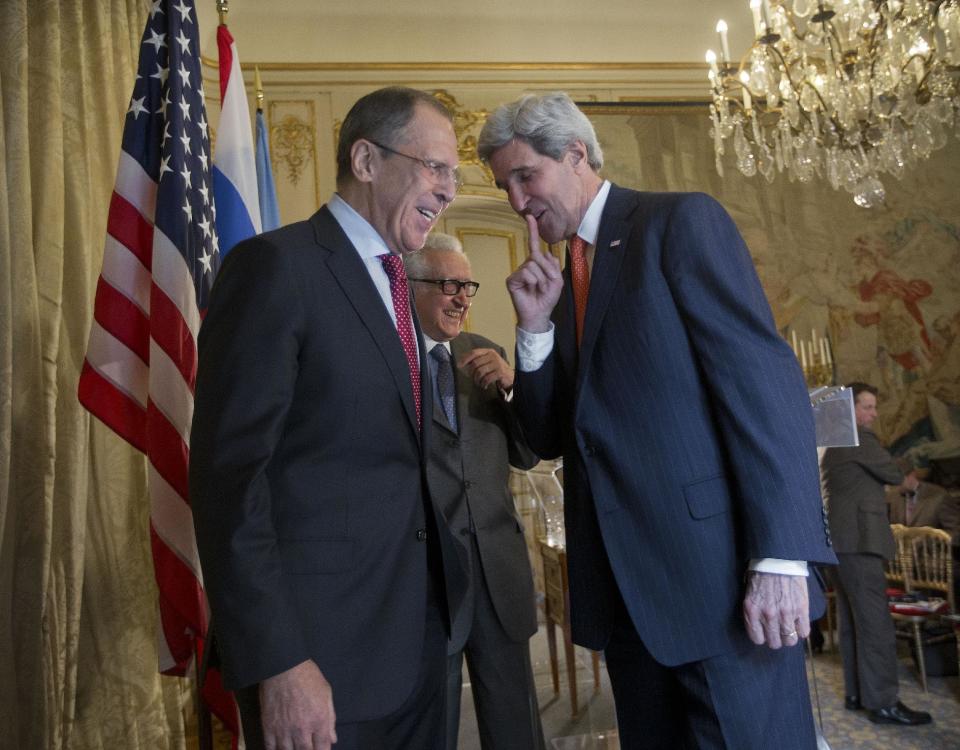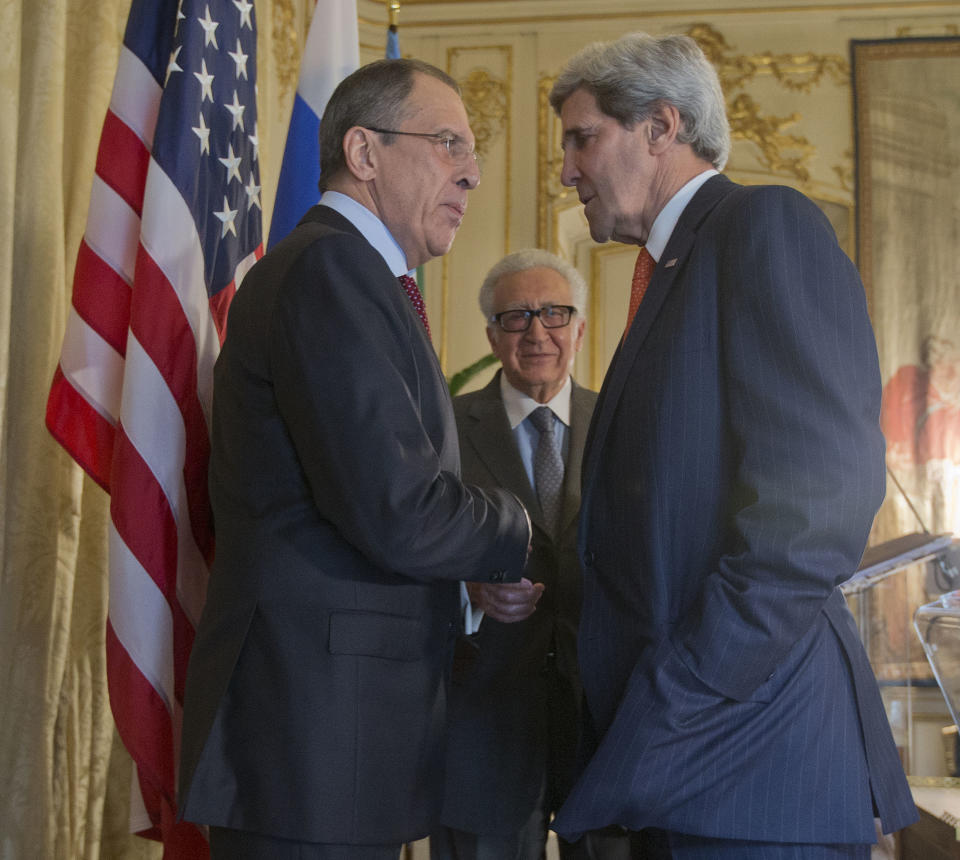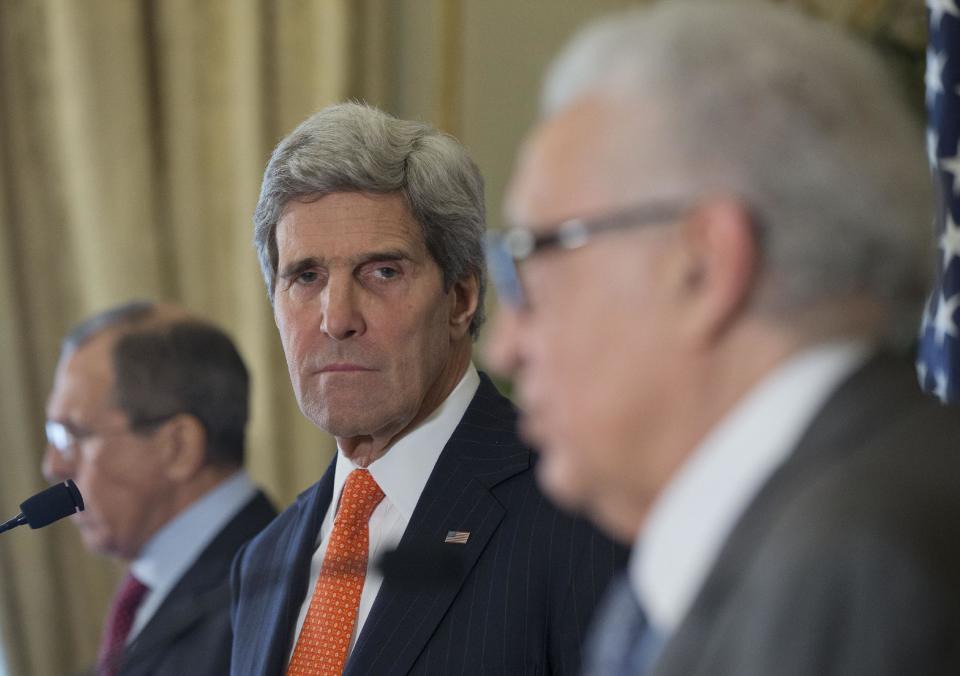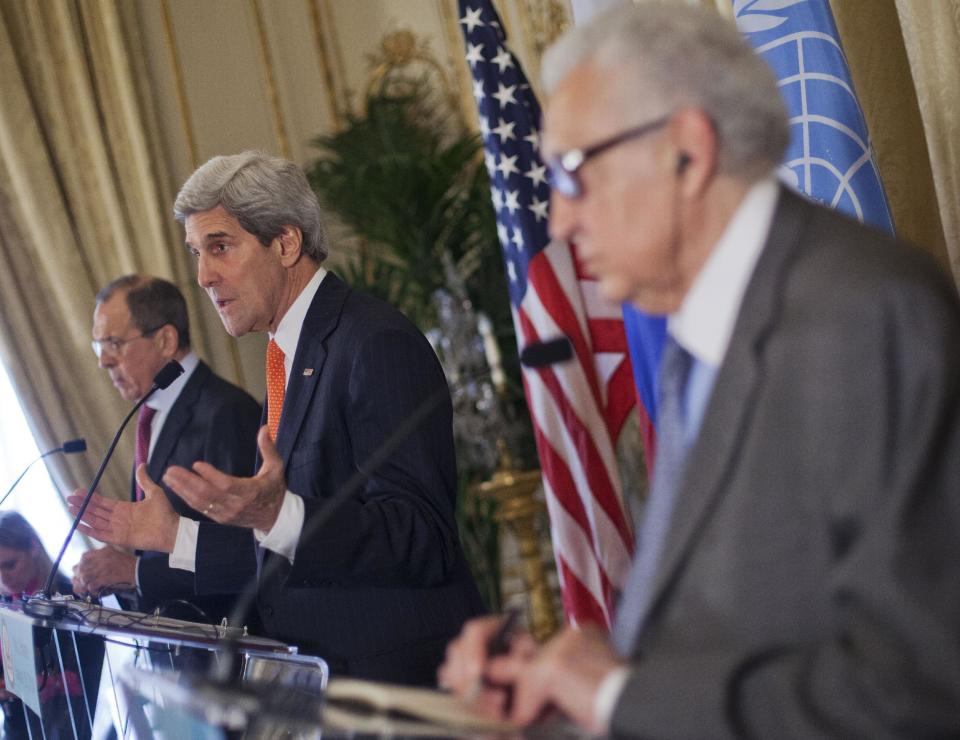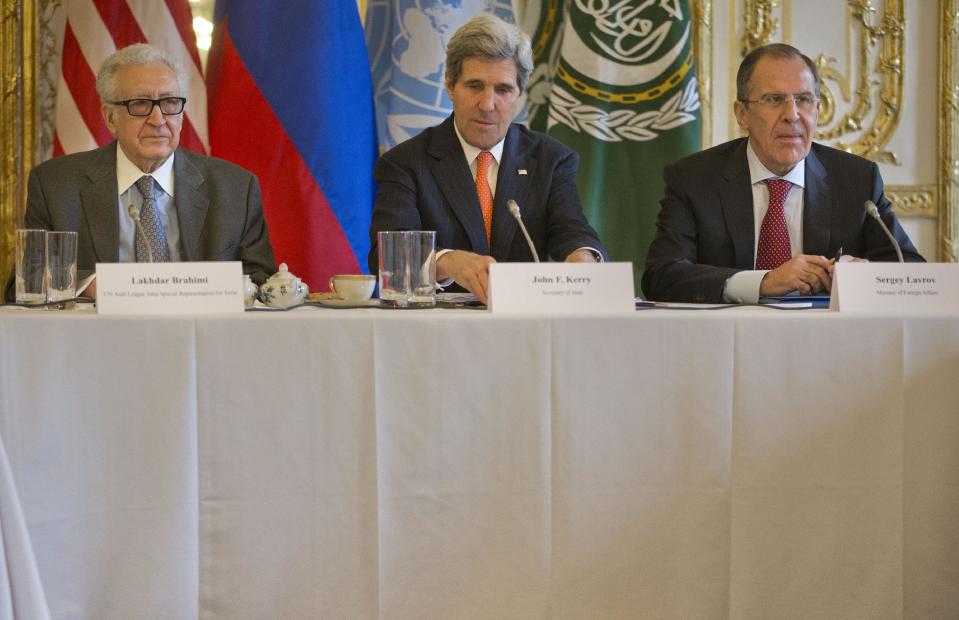Militants threaten fragile step to Syrian peace
PARIS (AP) — In a first yet fragile step toward peace, Syria's government and the main but disputed moderate opposition group seeking to oust it have agreed to allow humanitarian aid into some blocked-off parts of the scarred Mideast country.
The agreement was announced by the top envoys for the U.S. and Russia, who together are working the opposite sides to broker progress in any possible way to ease the bloody strife that has engulfed Syria for nearly three years without an end in sight.
U.S. Secretary of State John Kerry and Russian Foreign Minister Sergey Lavrov are still pushing for a cease-fire in local pockets around the country and a prisoner exchange, which they said would help set the tone for compromise in the run-up to a peace conference scheduled for next week.
Both men grimly conceded that a final settlement for both sides to build a new government would happen no time soon — if ever.
"But we must begin, and we must begin now," Kerry told reporters in Paris. He said the process "will be difficult and will take some time."
Lavrov said, "We're going to do everything in our power to initiate a process.... This is not going to be a one-time event."
The peace process has been beset in recent weeks by chaos within the Western-backed opposition group, known as the Syrian National Coalition, which is one of the only alliances of rebel fighters and political leaders willing to deal with Syrian President Bashar Assad's government. The coalition is in exile, and has lost widespread credibility within its ranks and among rival opposition officials and rebel groups in Syria who have broken away and are fighting for the upper hand against al-Qaida-linked militants.
An estimated 130,000 people have been killed in the war that began in early 2011, and as many as 8 million others have been forced from their homes, Kerry said. The number of refugees stands at about 2 million, he said.
But even the tentative steps forward that were announced Monday carry high risks of being thwarted by militants.
Lavrov noted that rebel insurgents attacked a recent government-sanctioned humanitarian aid convoy to the Palestinian refugee camp of Yarmouk where there were fresh reports of illnesses and deaths among residents from hunger-related ailments this weekend.
A U.N. official last week confirmed at least 15 people have died in Yarmouk in recent weeks, but residents say the real number is close to 50. The U.N.'s Relief and Works Agency that supports Palestinian refugees had until recently shipped food into the area, but has not been able to do so since September as the government tightened its blockade.
The U.N. humanitarian chief said last month that an estimated 250,000 people in besieged communities in Syria were beyond the reach of aid. Both sides have resorted to blockades and the government has kept outside aid sharply limited. Key humanitarian routes are increasingly cut off by the fighting, and kidnappings of aid workers are on the rise
Lavrov also noted that an attempt to deliver aid from the International Committee of the Red Cross to hard-struck areas near Damascus was being planned.
Kerry acknowledged what he described as an unacceptable uncertainty that insurgents and extremists have created in Syria as other nations try to nudge it toward peace.
"We do not want a ceasefire which would be used by a terrorist group, because that would be against the interests of everyone," Lavrov said.
"And those terrorists greatly complicate this equation," Kerry said. "And if disorder is allowed to continue to grow, it is extremists who will benefit, and it's all the people who want a peaceful solution and stability who will lose."
He said the moderate opposition coalition has agreed to enforce a cease-fire in places they can control, including Aleppo, the country's largest city, but suggested the militants would not abide by one.
The Syrian National Coalition is deeply divided over whether to attend peace talks scheduled for Jan. 22 in Montreux, Switzerland, and will vote later this week to decide. The group's president, Ahmad al-Jarba, met with Kerry on Monday for the second time in as many days as the United States made clear that the coalition must show up or suffer a severe credibility hit within the Western world.
While Kerry and Lavrov said they agreed on several points, their nations remained at an impasse on whether Iran, Syria's strongest ally, should attend next week's talks.
Kerry said he would welcome Iran's participation — but only if Tehran signs off on earlier diplomatic agreements that a transitional government in Syria would be created by mutual consent and, therefore, likely not include Assad or his close allies.
Lavrov, however, said Iran should attend, adding that some other participants have rejected parts of the earlier agreement. He did not specify, but Assad's government, which is sending a delegation, has said the president will not surrender power and may run again in elections later this year.
The U.N., which is hosting the talks, has not yet invited Iran to attend, although a final decision had yet to be made.
In Beirut, where he was visiting Monday, Iranian Foreign Minister Mohammed Zarif fueled the debate by saying he is "always ready to go" to help Syria find a way out of war.
___
Associated Press writers Zeina Karam and Bassem Mroue in Beirut contributed to this report.
On Twitter: https://twitter.com/larajakesAP and https://twitter.com/lhinnant
